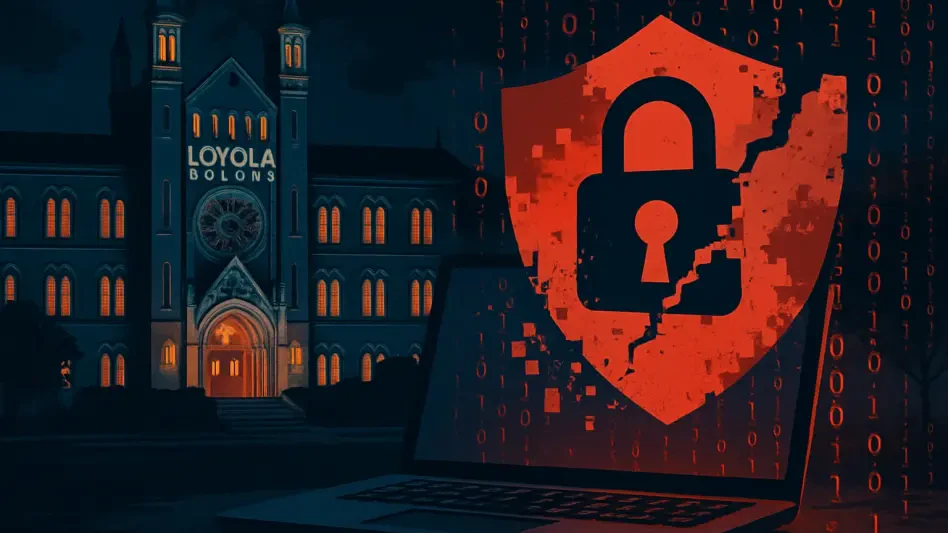Indonesia’s government, spearheaded by the Ministry of Communications and Digital, is making significant strides towards finalizing the long-awaited Cybersecurity and Cyber Resilience Bill. Originally proposed in 2019, the bill has gained new momentum and is now included in the national legislative program. The aim is to secure critical infrastructure and protect the country’s digital ecosystem from ever-growing cyber threats. This initiative marks a pivotal moment in Indonesia’s journey towards a more secure digital future, bringing the nation in line with other countries that have already established solid legal frameworks for cybersecurity.
Strategic Legislative Goals
Protecting National Interests
The primary objective of the Cybersecurity Bill is to shield Indonesia’s critical infrastructure and society from cyber threats through robust legislation. A major aspect of the bill is to clearly outline the roles and responsibilities of various stakeholders involved in maintaining cybersecurity. These stakeholders include governmental bodies, private enterprises, and other critical infrastructure entities. By meticulously defining these roles, the bill ensures that there is no ambiguity regarding who is responsible for what aspects of cybersecurity.
The bill also specifies various sanctions for non-compliance, ranging from written warnings to criminal penalties. These measures underscore the government’s seriousness about enforcing cybersecurity standards and ensuring that all relevant entities adhere to best practices. The aim is to create a secure digital environment where the risks of cyber threats are minimized, and the impact of any potential breaches is effectively contained. This comprehensive approach is designed to foster public trust in digital platforms and services, which is essential for the continued digital transformation of the country.
Collaborative Approach
Deputy Minister Nezar Patria underscores the importance of ongoing discussions between the government and multiple stakeholders to prioritize cybersecurity. In a digital age where cyber threats are constantly evolving, it is imperative that all stakeholders are on the same page regarding security protocols and measures. These collaborative efforts are aimed at creating a unified and holistic cybersecurity framework that can adapt to new challenges as they arise. By involving various stakeholders, the government ensures that the bill’s provisions are practical and effective across different sectors.
The collaborative approach also extends to the integration of cybersecurity measures into every digital innovation. This means that as new technologies and platforms are developed, they are designed with security in mind from the ground up. This proactive stance on cybersecurity helps in preemptively identifying and mitigating potential vulnerabilities, thereby reducing the risk of cyberattacks. By fostering a culture of security-first in digital innovations, Indonesia aims to build a resilient digital ecosystem capable of withstanding and quickly recovering from cyber threats.
Comprehensive Cybersecurity Measures
Regulation Compliance
To enhance the legislative landscape, the government is focusing on improving adherence to existing laws, such as the Personal Data Protection Law (PDP Law). These regulations are crucial for setting stringent security standards and legal obligations for both private and public electronic system providers that handle personal data. By ensuring compliance with these laws, the government aims to create a robust legal framework that supports comprehensive cybersecurity measures. This framework is essential for protecting sensitive personal information and maintaining public trust in digital services.
Improving regulation compliance also involves regular reviews and updates of existing laws to keep pace with the rapidly evolving digital landscape. This proactive approach ensures that the legal framework remains relevant and effective in addressing current and emerging cyber threats. The government also plans to conduct widespread awareness campaigns to educate organizations and the public about their responsibilities under these laws. By fostering a culture of compliance, Indonesia aims to build a secure and trustworthy digital environment for all its citizens.
AI Ethical Guidelines and Regional Cooperation
The Ministry of Kominfo has also issued guidelines for responsible AI development and implementation. These guidelines are designed to ensure that AI technologies are developed and used in ways that are ethical, transparent, and secure. By setting clear ethical standards, the government aims to prevent the misuse of AI technologies and mitigate potential risks associated with their deployment. These guidelines are an integral part of the broader cybersecurity framework and are intended to complement other legislative measures.
Moreover, Indonesia’s active participation in ASEAN Cyber Security Cooperation highlights a regional approach to enhancing threat intelligence exchange and building national cyber resilience. This regional cooperation is essential for addressing cross-border cyber threats that require coordinated responses. By collaborating with neighboring countries, Indonesia can benefit from shared expertise, resources, and best practices in cybersecurity. This collective effort helps in creating a stronger and more united front against cyber threats, thereby enhancing the overall security of the region.
Enhancing Prevention and Response
Real-time Visibility and AI Integration
A significant part of the government’s strategy involves prioritizing the prevention of cyber threats by upgrading incident response capabilities across all sectors. The aim is to employ advanced technologies that offer better real-time visibility for detecting cyberattacks. These technologies include sophisticated AI systems that can analyze vast amounts of data and identify potential threats in real time. By leveraging AI, the government aims to enhance its ability to detect and respond to cyber threats swiftly and effectively. This proactive approach is crucial for minimizing the impact of cyberattacks and ensuring the continuity of essential services.
In addition to AI, the government plans to invest in other advanced cybersecurity technologies and infrastructure. This includes enhanced monitoring systems, threat intelligence platforms, and secure communication networks. These investments are aimed at building a comprehensive and resilient cybersecurity infrastructure that can adapt to new threats. By prioritizing prevention and real-time response, Indonesia aims to stay ahead of cyber threats and protect its critical infrastructure and digital ecosystem.
Strengthening Security Protocols
Improvements in security protocols are also on the agenda, targeting agencies that provide public services or manage critical infrastructure. These enhancements are designed to ensure that essential services remain operational and secure against potential cyber threats. This includes implementing strict access controls, regular security audits, and comprehensive incident response plans. By strengthening security protocols, the government aims to create a robust defense against cyber threats and minimize the risk of disruptions to essential services.
The government also plans to conduct regular training and awareness programs for employees and stakeholders involved in managing critical infrastructure. These programs are aimed at equipping them with the necessary skills and knowledge to effectively respond to cyber threats. By fostering a culture of security awareness, the government aims to enhance the overall resilience of its critical infrastructure. This holistic approach to strengthening security protocols is essential for creating a secure and resilient digital environment.
Private Sector Participation
National and Global Partnerships
Recognizing the vital role of the private sector, the Indonesian government is actively collaborating with both national and global technology companies. These partnerships are crucial for capacity building, driving innovation, and fortifying infrastructure against sophisticated cyber threats. By leveraging the expertise and resources of private sector partners, the government aims to enhance its cybersecurity capabilities and stay ahead of emerging threats. This collaborative approach also helps in fostering a culture of innovation and security in the digital ecosystem.
The government is also encouraging private sector companies to adopt best practices in cybersecurity and comply with relevant regulations. This includes conducting regular security audits, implementing robust security measures, and participating in threat intelligence sharing initiatives. By promoting a culture of compliance and security, the government aims to create a secure digital environment where businesses and individuals can thrive. These efforts are essential for building a resilient and trustworthy digital economy.
Leveraging AI Solutions
Private sector solutions, particularly those utilizing AI, are seen as pivotal in the fight against advanced cyberattacks. Through these collaborations, the government aims to harness cutting-edge technologies to bolster national cybersecurity efforts. AI technologies can analyze vast amounts of data, identify patterns, and detect potential threats in real time. This capability is essential for enhancing the government’s ability to respond to cyber threats swiftly and effectively. By leveraging AI solutions, the government aims to stay ahead of cyber threats and protect its critical infrastructure and digital ecosystem.
In addition to AI, the government is also exploring other advanced technologies and innovative solutions to enhance its cybersecurity capabilities. This includes blockchain technology, advanced encryption methods, and secure communication networks. By staying at the forefront of technological advancements, the government aims to build a comprehensive and resilient cybersecurity infrastructure. These efforts are essential for creating a secure and trustworthy digital environment for all citizens.
Overarching Trends and Consensus Viewpoints
There is an undeniable consensus on the need for robust cybersecurity legislation to protect national interests amidst rapid digital transformation. The prevalent trend involves leveraging advanced technologies such as AI to enhance both preventive measures and incident responses. Collaboration between government entities, private sector participants, and international partners is highlighted as indispensable for a comprehensive cybersecurity strategy. Nezar underscores the disruptive potential of cyberattacks on vital sectors, including public services and the digital economy. This acknowledgment drives the multistakeholder collaboration approach, essential for national cybersecurity.
Synthesis and Evaluation
The article effectively synthesizes the different facets of Indonesia’s cybersecurity efforts, presenting a unified understanding of the strategic measures and collaborative approaches under consideration. It reflects the nuances of prioritizing cybersecurity in a digitally transforming landscape while emphasizing the criticality of joint efforts across all sectors. By showcasing Indonesia’s committed steps towards securing cyberspace through inclusive legislative efforts, leveraging technology, and fostering robust multi-sector collaborations, the government aims to create a resilient digital environment.
Summary of Main Findings
Indonesia’s government, led by the Ministry of Communications and Digital, is making significant progress in moving towards finalizing the much-anticipated Cybersecurity and Cyber Resilience Bill. This bill was initially introduced in 2019 but has recently gained renewed momentum and is now part of the national legislative agenda. The primary goal of this legislation is to secure critical infrastructure and protect the country’s digital ecosystem from the continuously increasing cyber threats. This initiative is a crucial milestone in Indonesia’s path to a more secure digital future, aiming to bring the nation in line with other countries that have already implemented robust legal frameworks for cybersecurity. By adopting this bill, Indonesia hopes to enhance its capabilities to combat cyber threats effectively, ensuring the digital safety and resilience of its infrastructure and citizens. This move demonstrates Indonesia’s commitment to fostering a secure online environment, which is essential for the nation’s economic and social development in the increasingly digital age.





